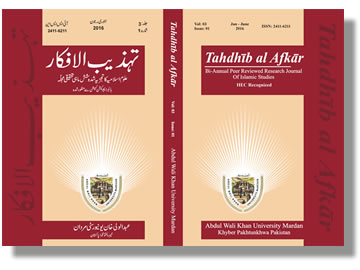Deoband Inspired Politico-Educational Movement in Pakhtūnkhwa during the British Rᾱj
Abstract
With the arrival of the British, the English education system became operational in the Pashtūn region. The Pashtūns viewed the new education system as a threat to their religio-cultural ethos thanks to Lord Macauley statement about cultural transformation in India as a pre-requisite for British perpetuation in power. The Deoband Madrassa was already endeavoring to protect Islamic tradition in the sub-continent. In the second decade of the twentieth century, the Ḥaji Ṣᾱhib of Turangzai and ‘Abdul Ghaffᾱr Khᾱn, under inspiration from Deoband, started establishing religious seminaries in Pakhtūnkhwa with a view to ward off the effect of the new education system. The movement subsequently gained momentum under Bakht Jamᾱl of Ṣwᾱbi and Mian Aḥmad Shᾱh of Chᾱrsadda which the government viewed as a challenge to its educational institutions. This article examines as to how the British authorities looked upon these Madrassas and how the Pashtūns worked against adversities.





